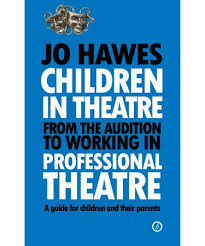
Got a(nother) fun job! *musical trigger*
So… a new week and another job. This time it’s an amateur orchestra that I’m working with to create a whole new concert program to launch them, since they’re very new and haven’t had any chances of playing together that much. They’ve asked me not to tell too much om them and the concert until later on, but I’m allowed to share the intended program with you and all of my thoughts about it with you.
This concert will be a musical cavalcade for the audience and a great way for them to get a feel for each other – plus that they’ll enjoy playing pieces that are (mostly) rather well-known. The name of the concert will be:
A CIRCUMNAVIGATION OF THE WORLD!
The orchestra will embark on a musical journey around the world and will be visiting as many continents as they possibly can, whilst playing melodies from each continent. Obviously we can’t get every one of them, or do any of you know a musical with an inspiration from the Antarctica? They will travel on the Titanic across the Atlantic, and hopefully the whole orchestra will survive that, they will experience an American prom gone wrong, hunt for ghosts at the opera house and fight for justice on the barricades. Quite and adventure in other words!
I’m working on a list of songs, overtures and entr’actes which I’ll put forward to the Production Manager and the conductor. I’m giving you it here and feel free to write a comment to tell me what YOU’D like to hear or play at a show like this!
These are not in any particular order and not everything will be in the final production!
-
Defying Gravity – WICKED
-
Entr’Acte – THE PHANTOM OF THE OPERA
-
Epilogue (Finale) – LES MISÉRABLES
-
Alma Mater + The Destruction – CARRIE
-
Carrie Reprise + finale – CARRIE
-
Sit down John – 1776
-
Willkommen – CABARET
-
Mein herr – CABARET
-
So long, farewell – THE SOUND OF MUSIC
-
Sun and Moon – MISS SAIGON
-
The American Dream – MISS SAIGON
-
Shadowland – THE LION KING
-
Hakuna Matata – THE LION KING
-
Epilogue: In every age/Finale – TITANIC A NEW MUSICAL
-
Naughty – MATILDA
-
Gethsemane (I only want to say) – JESUS CHRIST SUPERSTAR
-
Merano – CHESS
-
Anthem – CHESS
-
Overture – MAMMA MIA
-
The dance at the Gym – WEST SIDE STORY
-
America – WEST SIDE STORY (WSS)
-
I feel pretty – WSS
-
Don’t cry for me, Argentina – EVITA
-
Stranger in paradise – KISMET
-
I am what I am – LA CAGE AUX FOLLES
This list includes some of my personal favorites and some that I hope that both orchestra and audience will like and hum along to.
As an orchestrator/arranger you will be asked to do these kinds of things, not always with the level of freedom that I’ve been given on this project, you will often be asked to arrange a number of songs in a certain way and/or with specific list of instruments, feel, and length and not always with a good salary. But as it is, I love musicals and find these jobs the most rewarding.
So!
Do you miss your favorite song? Tell me with a comment and I’ll get back to you.
Until next time!

